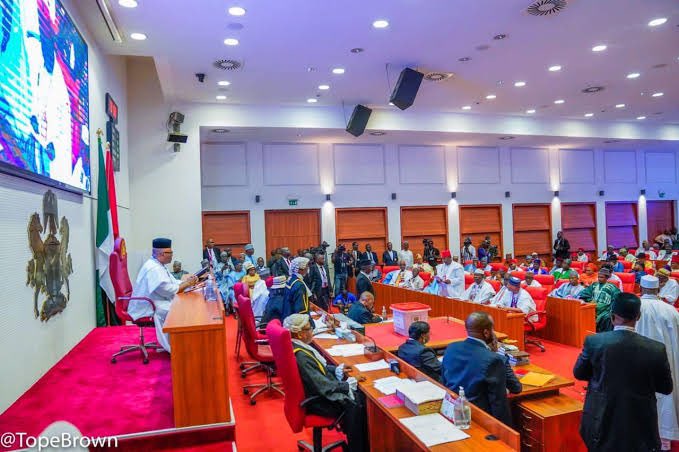Abuja, Nigeria– In a significant legislative move, the Nigerian Senate has advanced a groundbreaking bill that, if enacted, will allow foreigners residing in the country to acquire the National Identification Number (NIN). The bill, titled the “National Identity Management Commission (Repeal and Enactment) Bill 2024 (SB. 472),” successfully passed its second reading on Tuesday, signaling a major step towards inclusive identification practices in Nigeria.
The bill, sponsored by Deputy Senate President Barau I. Jibrin from Kano North, seeks to broaden the accessibility of the NIN to all residents of Nigeria, irrespective of their citizenship status.
During the plenary session, Senator Cyril Fasuyi of Ekiti North eloquently presented the key provisions of the proposed legislation, underscoring its potential to foster inclusivity and streamline identification processes for both citizens and non-citizens.
“This bill is a pivotal step towards ensuring that everyone residing in Nigeria, including foreign nationals, can access essential services and participate fully in the society,” stated Senator Fasuyi. “By allowing non-citizens to obtain the NIN, we are promoting a more inclusive and efficient identification system that benefits the entire nation.”
The legislation also aims to replace punitive measures with administrative actions to encourage compliance with NIN usage rules. This approach is designed to promote adherence without imposing harsh legal consequences, thereby making the system more user-friendly and less intimidating for all residents.
Senator Jibrin, overseeing the proceedings, emphasized the importance of the bill in enhancing Nigeria’s identification framework. “This is a forward-thinking initiative that aligns with global best practices,” he remarked. “It not only simplifies the identification process but also integrates all residents into a unified system, thereby enhancing national security and socio-economic planning.”
The bill’s passage through the second reading marks a crucial phase in the legislative process, with further scrutiny and potential amendments expected in subsequent readings. If enacted, the bill will task the National Identity Management Commission (NIMC) with implementing the new provisions, ensuring that the identification process is accessible and efficient for all residents.
This legislative development comes amid growing recognition of the importance of a comprehensive identification system in driving national development. By including non-citizens in the NIN framework, Nigeria stands to improve data accuracy, bolster security measures, and enhance service delivery across various sectors.
As the bill progresses, stakeholders and observers alike are keenly watching its potential impacts on the socio-economic landscape of Nigeria.
The inclusive nature of the proposed law is seen as a significant step towards building a more cohesive and integrated society, where every resident, regardless of origin, can fully participate in the nation’s growth and development.




